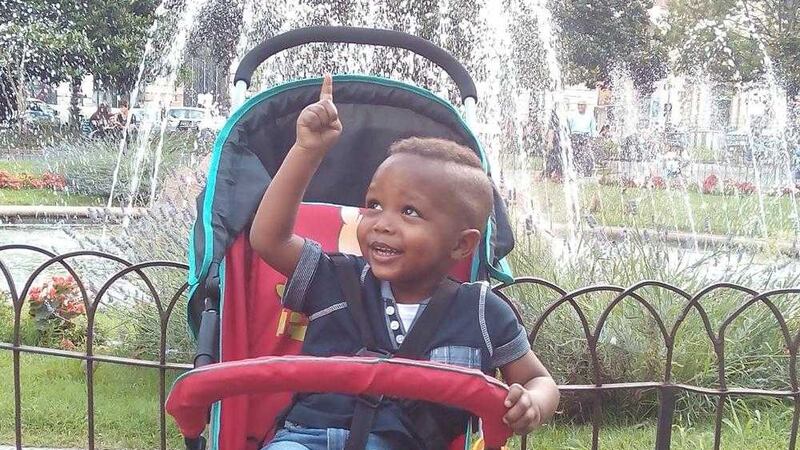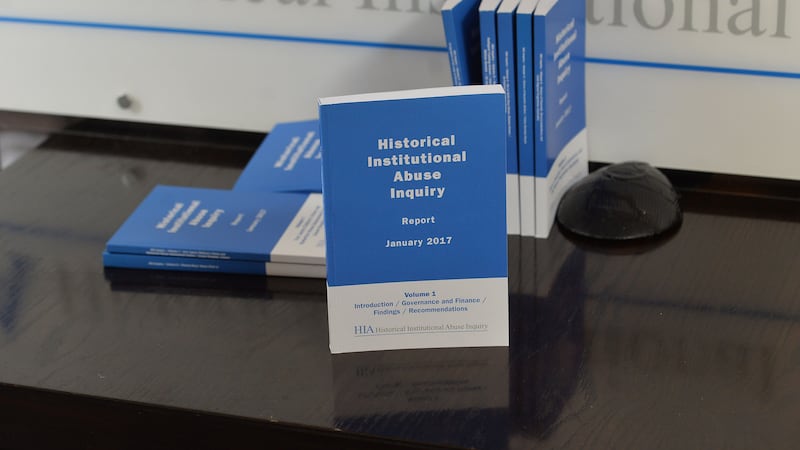An inquest into the death of a toddler who choked on a window blind cord has heard pleas for action to avert similar tragedies in the future.
The coroner urged parents or anyone involved in the care of children to double check their homes to ensure the "silent killers" were removed or modified.
His warning came after the parents of two-year-old Bryan Saba issued heartfelt calls for steps to be taken to prevent any other child dying that way.
A tearful Maria Saba told the inquest: "I hope something will come out that will give better security from blind cords.
"It's difficult for me to be here or to speak of what happened to us but I prefer to put my hands to this task so other families won't suffer what we are suffering today."
Bryan became entangled in the looped blind cord of the living room window at his home in Portadown, Co Armagh, last September.
He was playing in the room on his own and an older sister found him hanging from the cord.
He sustained a significant brain injury and died in hospital in Belfast 15 days after the accident.
Northern Ireland's coroner Joseph McCrisken said, according to Royal Society for the Prevention of Accidents (RoSPA) statistics, there had been 27 deaths linked to looped blind cords across the UK since 1999.
In evidence to the inquest a senior pathologist said Bryan's case was the third death of a child in such circumstances in three years.
"Bryan's death is an absolute tragedy for his family - his mother, father, sisters and brothers and other family - and also for our community, of which Bryan was a member," said Mr McCrisken.
"I'm satisfied on the evidence before me that Bryan's death was a tragic accident.
"Nobody is to blame for what happened to Bryan. And what happened to him could also occur in hundreds if not thousands of homes across Northern Ireland."
He added: "There remains thousands, tens of thousands of lethal looped blind cords still in homes of parents and carers in Northern Ireland today.
"The cords are lethal and silent killers of babies and young children which lurk in homes of parents and carers of young children."
Mr McCrisken told Belfast Coroners' Court one of his responsibilities was to raise awareness and help save lives in the future.
"I, as coroner for Northern Ireland, urge and plead with each and every parent, grandparent, aunt, uncle, child minder, landlord or carer of children to double check each and every blind in your home," he said.
"As coroner I don't want to hear another inquest into the death of child as a result of strangulation from a blind cord.
"I certainly don't want to see another family endure the heartache or grief that this family has endured."
He said he would be writing to Northern Ireland's new health minister - a role expected to be filled later this week - to raise his concerns
"I want my letter to be the first on his or her desk," he said.
The coroner praised the actions of the medics who cared for Bryan and singled out passer-by Adam King who helped give first aid in the immediate aftermath of the incident on September 11.
He also praised the toddler's parents for deciding to donate his organs.
"The lives of a number of children have been saved," he said.
The infant's father Feliciano Saba also urged greater vigilance.
"Since Bryan's death we have been existing from one day to the next," he said in a statement read to the court.
"Surviving on the strength that God has given us to sustain us and our children.
"Not a day passes without me suffering continuous anguish."
Bryan's parents are originally from Guinea-Bissau in west Africa. They married in Italy and Bryan was born in Verona before family members moved to Northern Ireland at the start of 2015 for work.
Mr McCrisken urged people to visit the RoSPA or Make It Safe websites for advice on reducing the dangers posed by blinds.


